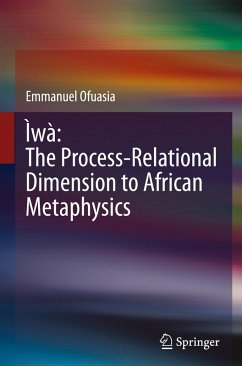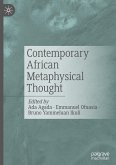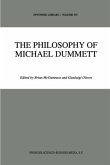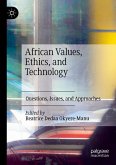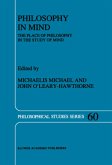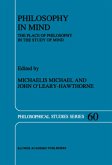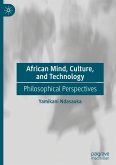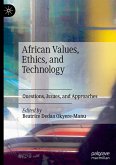This book approaches the subject of African metaphysics historically as it connects Ancient Egypt to Yorùbá. It provides a history of African metaphysics from ancient Egypt or Kemet down to John Boakye Danquah and Placide Tempels in the 20th century and then Innocent Asouzu, Ada Agada, and Aribiah David Attoe, in the 21st century. As it surpasses the deductions of these previous works, it moves further to showcase African originality and approaches to studying reality, whilst resisting the temptation to deduce conclusions from Western philosophy. It is the first book in the history of African philosophy to use a process-relational approach to interrogate African metaphysics. It also serves to harmonize and engage prominent African scholars who have written on the subject of African metaphysics.
The general scope of this book centers on engaging the history of distortion and misunderstanding of African metaphysics by providing a relevant and reliable process-relational background as well as an alternative trivalent logic system. Unless African metaphysical theories are understood from this perspective, they will remain powerless to overcome these misrepresentations. It appeals to students and researchers internationally actively working in the fields of African philosophy, Intercultural African studies as well as process studies.
______________________________
"This book is one of the valuable contributions to the emerging field of African philosophy, after decades (1970s-1990s) of rather fruitless debates on the status of the discipline. Like many others, the book side-tracks the seemingly unending controversy of whether or not there is such a thing as African philosophy." - Godwin Sogolo, Emerittus Professor of Philosophy, National Open University of Nigeria (NOUN).
"In the opening lines of the introduction of this monumental book, Dr. Ofuasia announces: "As you read these lines, the earth in which you live in, asan ontological entity is spinning at an estimate estimated speed of 67, 000 mph. This indicates that the perspective that a thing is not in motion or is at rest is one of the fallacies ever fed to humanity. Nothing rests!" I was awe struck by how this revelation from physics extends to metaphysics. This book is a welcoming addition to African metaphysical scholarship as the process-relational approach used to explore Egyptian and ancient Yorùbá thought system in this work creatively intersects emerging discourses on agency both at the animate and what humans call inanimate, ontology, plant sentience, African medicine, cosmogony, the physical sciences, neutral nihilism and other related metaphysical topics. The eclectic interrogation of classical concepts of Ìwà and Nun from the Yoruba and Egyptian intellectual traditions, respectively, is a trail-blazing contribution. Congratulations on this feat, Dr Ofuasia!" - Ademola Kazeem Fayemi, Queensland Bioethics Center, Australian Catholic University, Brisbane.
"Dr Ofuasia's book marries aspects of Egyptian philosophy with ancient Yorùbá metaphysics and process metaphysics, all under the framework of Ezumezu logic, and it works. What has emerged from this marriage is a new and contemporary theory in African metaphysics - Ìwà ontology which is strongly grounded on African thought. This book is recommended for anyone interested in (African) metaphysics." Aribiah David Attoe, University of the Witwatersrand.
"Emmanuel Ofuasia's text is engaged, at times even - rightfully - angry. This makes this a lively, energetic contribution. I appreciate that. This passion is often missing in philosophy, but it is much needed, especially in this area of research." - Bjoerne Freter, Hagerstown Community College, Maryland.
"In this timely work, Emmanuel Ofuasia thro
Hinweis: Dieser Artikel kann nur an eine deutsche Lieferadresse ausgeliefert werden.
The general scope of this book centers on engaging the history of distortion and misunderstanding of African metaphysics by providing a relevant and reliable process-relational background as well as an alternative trivalent logic system. Unless African metaphysical theories are understood from this perspective, they will remain powerless to overcome these misrepresentations. It appeals to students and researchers internationally actively working in the fields of African philosophy, Intercultural African studies as well as process studies.
______________________________
"This book is one of the valuable contributions to the emerging field of African philosophy, after decades (1970s-1990s) of rather fruitless debates on the status of the discipline. Like many others, the book side-tracks the seemingly unending controversy of whether or not there is such a thing as African philosophy." - Godwin Sogolo, Emerittus Professor of Philosophy, National Open University of Nigeria (NOUN).
"In the opening lines of the introduction of this monumental book, Dr. Ofuasia announces: "As you read these lines, the earth in which you live in, asan ontological entity is spinning at an estimate estimated speed of 67, 000 mph. This indicates that the perspective that a thing is not in motion or is at rest is one of the fallacies ever fed to humanity. Nothing rests!" I was awe struck by how this revelation from physics extends to metaphysics. This book is a welcoming addition to African metaphysical scholarship as the process-relational approach used to explore Egyptian and ancient Yorùbá thought system in this work creatively intersects emerging discourses on agency both at the animate and what humans call inanimate, ontology, plant sentience, African medicine, cosmogony, the physical sciences, neutral nihilism and other related metaphysical topics. The eclectic interrogation of classical concepts of Ìwà and Nun from the Yoruba and Egyptian intellectual traditions, respectively, is a trail-blazing contribution. Congratulations on this feat, Dr Ofuasia!" - Ademola Kazeem Fayemi, Queensland Bioethics Center, Australian Catholic University, Brisbane.
"Dr Ofuasia's book marries aspects of Egyptian philosophy with ancient Yorùbá metaphysics and process metaphysics, all under the framework of Ezumezu logic, and it works. What has emerged from this marriage is a new and contemporary theory in African metaphysics - Ìwà ontology which is strongly grounded on African thought. This book is recommended for anyone interested in (African) metaphysics." Aribiah David Attoe, University of the Witwatersrand.
"Emmanuel Ofuasia's text is engaged, at times even - rightfully - angry. This makes this a lively, energetic contribution. I appreciate that. This passion is often missing in philosophy, but it is much needed, especially in this area of research." - Bjoerne Freter, Hagerstown Community College, Maryland.
"In this timely work, Emmanuel Ofuasia thro
Hinweis: Dieser Artikel kann nur an eine deutsche Lieferadresse ausgeliefert werden.

